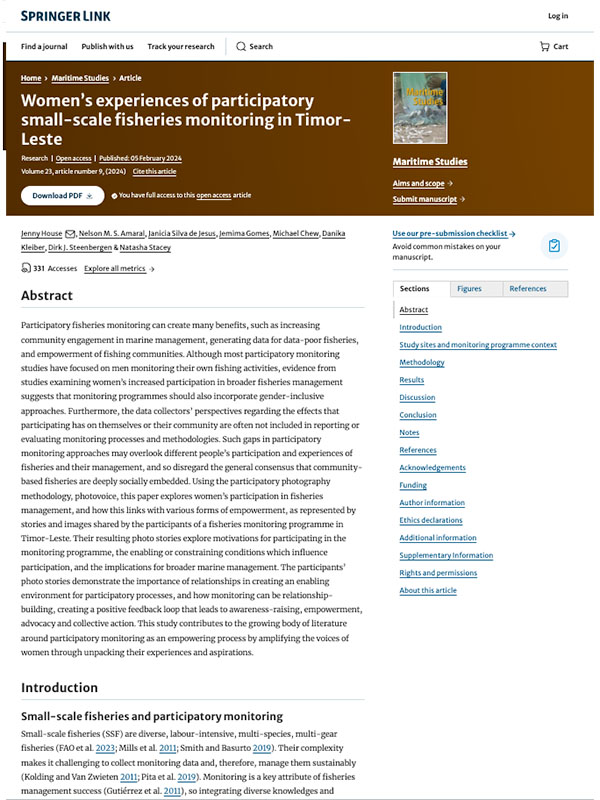Participatory fisheries monitoring can create many benefits, such as increasing community engagement in marine management, generating data for data-poor fisheries, and empowerment of fishing communities. Although most participatory monitoring studies have focused on men monitoring their own fishing activities, evidence from studies examining women’s increased participation in broader fisheries management suggests that monitoring programmes should also incorporate gender-inclusive approaches. Furthermore, the data collectors’ perspectives regarding the effects that participating has on themselves or their community are often not included in reporting or evaluating monitoring processes and methodologies. Such gaps in participatory monitoring approaches may overlook different people’s participation and experiences of fisheries and their management, and so disregard the general consensus that community-based fisheries are deeply socially embedded. Using the participatory photography methodology, photovoice, this paper explores women’s participation in fisheries management, and how this links with various forms of empowerment, as represented by stories and images shared by the participants of a fisheries monitoring programme in Timor-Leste. Their resulting photo stories explore motivations for participating in the monitoring programme, the enabling or constraining conditions which influence participation, and the implications for broader marine management. The participants’ photo stories demonstrate the importance of relationships in creating an enabling environment for participatory processes, and how monitoring can be relationship-building, creating a positive feedback loop that leads to awareness-raising, empowerment, advocacy and collective action. This study contributes to the growing body of literature around participatory monitoring as an empowering process by amplifying the voices of women through unpacking their experiences and aspirations.
Publications
Women’s experiences of participatory small-scale fisheries monitoring in Timor-Leste

Publication type
Publication year
2024
Download size
>5mb
Citation
Jenny House, Nelson M. S. Amaral, Janicia Silva de Jesus, Jemima Gomes, Michael Chew, Danika Kleiber, Dirk J. Steenbergen & Natasha Stacey
Share this:
Facebook
Twitter
LinkedIn
WhatsApp
Email
Related publications
Join a global movement
















